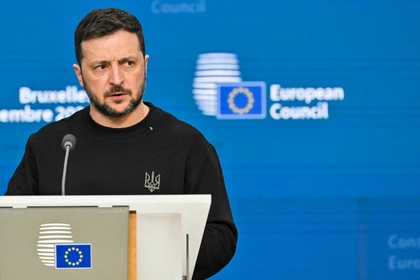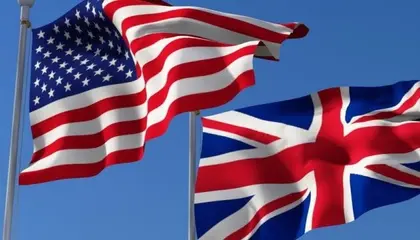Britain and the United States on Friday, Feb. 10, slapped anti-corruption sanctions on eight Bulgarians, including two former ministers and an influential lawmaker.
The "US Treasury, in coordination with our UK partners, sanctioned today several high-profile Bulgarian individuals... for their extensive involvement in corruption in Bulgaria," US Secretary of State Antony Blinken tweeted.
JOIN US ON TELEGRAM
Follow our coverage of the war on the @Kyivpost_official.
"We're steadfast in the fight against systemic corruption, which undermines democratic institutions," he added.
The sanctioned Bulgarians are accused of having "undermined the country's democratic institutions, and perpetuated its corrosive dependence on Russian energy sources" through their corrupt acts, the State Department said in a statement.
Financial sanctions will be imposed on the individuals, and they, and their families, will be prohibited from entering US territory.
Bulgaria's former finance minister Vladislav Goranov, who served in Boyko Borisov's government from 2014 to 2020, is among those sanctioned.
Goranov is accused of having used his position to "facilitate bribery of Bulgarian officials and deprive the Bulgarian government of tax revenues in favor of Bulgarian oligarchs", the US Treasury said.
Former Energy Minister Rumen Ovcharov and two previous directors of Bulgaria's only nuclear power plant in Kozloduy are suspected of engaging in corrupt activities with regard to "energy contracts with Russian energy companies".

Zelensky Says Trump and EU Must Work Together to Secure Peace
The leader of a pro-Russian lobby group, Nikolay Malinov, was also sanctioned for having bribed a judge in order to obtain a visa for Russia after having been charged with espionage and being barred from international travel.
Friday's sanctions by the Treasury constitute the second time since June 2021 that the US has applied the Magnitsky act, a law under which Washington punishes foreign government officials implicated in corruption or human rights abuses.
The act is named after Russian lawyer Sergei Magnitsky, who died in pre-trial detention in 2009 amid allegations of mistreatment in a Russian prison.
Lawmaker Delyan Peevski, a former "media magnate", was hit by British sanctions, alongside Vassil Bojkov, a billionaire who made his fortune in the gambling sector.
US ambassador to Sofia, Herro Mustafa, had recently regretted that "none" of the individuals sanctioned by the Magnitsky act were the subject to legal proceedings in Bulgaria.
"We have seen that corruption has fundamentally distorted how some institutions function and who controls them and that is to the detriment of the Bulgarian people," she lamented.
Bulgaria, which is about to hold its fifth legislative elections in two years in early April, has been gripped by a political impasse unprecedented since the end of communism in 1989.
You can also highlight the text and press Ctrl + Enter






